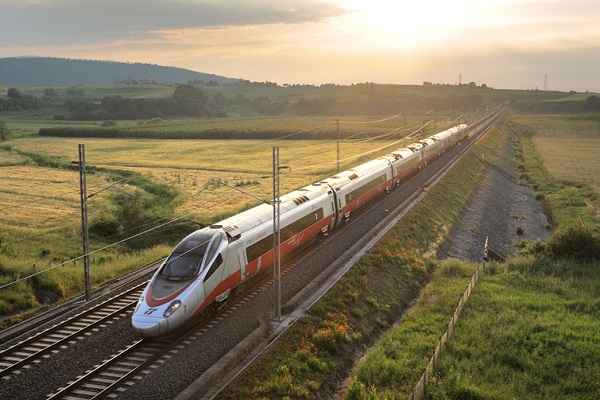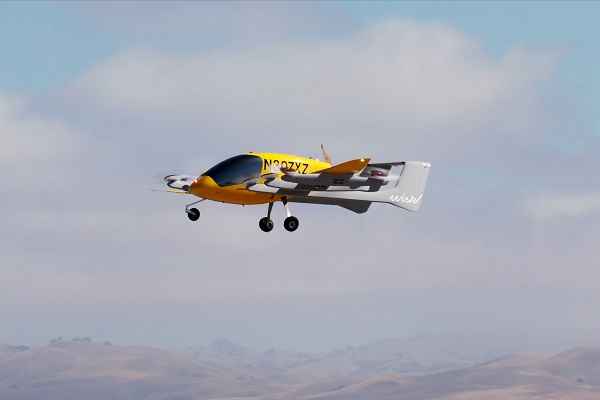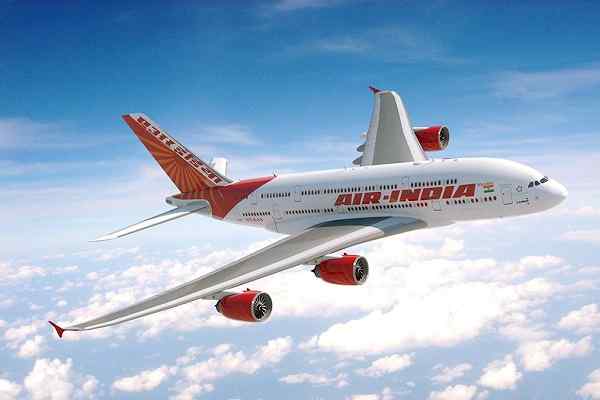 Korail unveils Next-Generation KTX-Cheongryong High-Speed Train
Korail unveils Next-Generation KTX-Cheongryong High-Speed Train Turkey launches new 700 km High-Speed Rail Link connecting Istanbul and Sivas
Turkey launches new 700 km High-Speed Rail Link connecting Istanbul and Sivas Japan agrees to resume stalled Colombo Light Rail Transit project of Sri Lanka
Japan agrees to resume stalled Colombo Light Rail Transit project of Sri Lanka Understanding the Critical Role of Systems Approach in Urban Railway Projects
Understanding the Critical Role of Systems Approach in Urban Railway Projects Exclusive Interview with Ms. Serda Urganciyan, Partner-CEO at Studio 88 Architecture
Exclusive Interview with Ms. Serda Urganciyan, Partner-CEO at Studio 88 Architecture Titagarh Rail Systems set to deliver first sleeper Vande Bharat Train by late 2025
Titagarh Rail Systems set to deliver first sleeper Vande Bharat Train by late 2025 UAE's First Vertiport gets Operational approval, A game-changer in Autonomous Transportation
UAE's First Vertiport gets Operational approval, A game-changer in Autonomous Transportation Nafisah Aslam-Zainudeen: Inspiring the Next Generation of Female Engineers
Nafisah Aslam-Zainudeen: Inspiring the Next Generation of Female Engineers DRA-DMRC JV awarded major contract for redevelopment of Ahmedabad Railway Station
DRA-DMRC JV awarded major contract for redevelopment of Ahmedabad Railway Station Revolutionizing Transportation: Hyperloop Technology in Saudi Arabia
Revolutionizing Transportation: Hyperloop Technology in Saudi Arabia
Urban Air Mobility Market set to soar, Projected to increase by US$5.28 Billion by 2027

New Delhi, India (Urban Transport News): The urban air mobility market is poised for significant expansion, with an anticipated growth of USD 5.28 billion between 2022 and 2027. This surge is projected to accelerate at a robust CAGR of 27.5% throughout the forecast period. The market's segmentation into Autonomous and Piloted types, Delivery and Passenger mobility applications, and its geographical distribution across North America, Europe, APAC, the Middle East and Africa, and South America, underlines the dynamic landscape of this burgeoning industry.
Driving Forces Behind Market Growth
Several factors contribute to the remarkable growth trajectory of the urban air mobility market. The increasing utilization of electric Vertical Take-Off and Landing (eVTOL) aircraft in military applications stands out as a significant driver. These aircraft offer unparalleled flexibility, operating from diverse locations, the choice of manual or autonomous flight, reduced noise levels, and the elimination of the need for traditional runways.
Moreover, the demand for efficient logistics and last-mile delivery solutions propels the market forward. The unique capabilities of eVTOLs make them an attractive option for overcoming the challenges faced in modern cities, such as congestion and environmental concerns. As more than 120 startups and aerospace companies delve into the development of eVTOLs, urban air mobility emerges as a promising solution for affordable, rapid, and sustainable travel.
The report identifies key players shaping the urban air mobility landscape, including industry giants such as Airbus SE, Archer Aviation Inc., EHang Holdings Ltd., and The Boeing Co. The market is witnessing a major trend – a widespread adoption of technological innovations. Notably, delivery providers are enhancing customer experience through web and mobile-based last-mile delivery management applications.
Challenges on the Horizon
Despite the optimistic outlook, challenges loom on the horizon. Limitations in existing battery technology emerge as a significant hurdle that could impede market growth. Unlike the successful electrification of cars, flights demand an immense amount of energy, posing a unique challenge to the industry's evolution.
Autonomous Urban Air Mobility on the Rise
Within the market segments, the autonomous category is poised to play a pivotal role in driving growth. Autonomous urban air mobility involves the use of unmanned aerial vehicles or drones for transportation in urban environments. This innovative concept aims to provide cities with a safe, efficient, and sustainable air transportation alternative, ultimately reducing traffic congestion and enhancing overall mobility.
Conclusion
In conclusion, the urban air mobility market is on a trajectory of substantial growth, fueled by technological innovation, increasing demand for efficient logistics, and the imperative for sustainable travel solutions. As challenges are addressed, and technological advancements continue, the market is positioned to revolutionize urban transportation.






